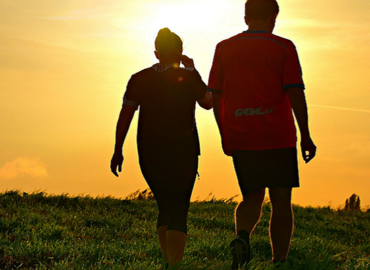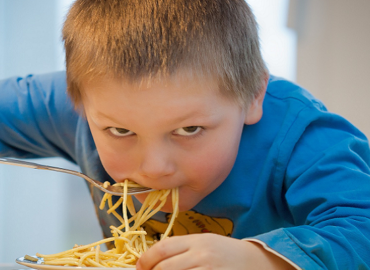Researchers believe that blood type can have a real influence on your health. In fact, blood type may be linked to a risk of developing certain diseases. The American Red Cross notes that common blood types are A+, A-, B+, B-, AB+, AB-, O+, O- with the differences of the various blood types being the presence or absence of certain molecules called A or B antigens, as well as a protein called the Rh factor. These differing antigens make an effect beyond more than just your blood type.
So what determines your blood type? Heredity. One’s natural parents determine the type of blood you have. Many combinations can be made from parents and in fact if both parents have the same blood type, this may not necessarily mean that their child will have the same type as them. Parents who both are type A may have a type A or type O child. And parents who both have type B may have a child with either type B or O. Yet parents that are both type O will probably have an O type child. If parents have a combination of type A and type B, a child may be A, B or O blood type.
Donating blood is a great way to learn your blood type if you do not know what blood type you are. It is reported that each year 4.5 million lives are saved with blood transfusions. Human blood cannot be manufactured, people are the only source of it and that is why it is important to donate blood to help those who need it. O negative blood can be used for any blood transfusion and there is always a demand for it.
Here are four ways your blood type and your health may be connected:
Heart Attack and Heart Disease
It seems clear that your blood type is related to your heart since the heart pumps blood to the rest of the body. Your blood type can increase the risk for conditions such as heart attack and heart disease. There is a gene called the ABO gene — a gene that is present in people with A, B, or AB blood types. The only blood type that doesn’t have this gene is type O. If you have the ABO gene and especially if you live in an area with high pollution levels, you may be at a greater risk of heart attack than those who don’t have the gene. This same gene can also raise your risk of coronary artery disease (CAD). CAD develops when the arteries that supply blood to and from your heart harden and narrow, which can lead to a heart attack if they become blocked. Non-O blood types have 25 to 30 percent higher levels of blood-clotting proteins (known as von Willebrand factor and factor VIII). Those added blood clotting proteins means that people with A, B or AB blood types also have a 15 percent greater risk of dying from heart disease when compared to people with O blood types.
Brain Function and Memory Loss
The ABO gene also has an effect on brain function and memory loss. People who have A, B, and AB blood types are up to 80 percent more likely to develop cognition and memory problems (which can lead to dementia) compared to those with O blood type. Scientists believe the reason for this memory loss is the fact that the clotting proteins in the non-O blood type can lead to conditions like high blood pressure, high cholesterol, and diabetes. These conditions can cause cognitive impairment and dementia. Blood type has been connected with strokes which can occur when the blood flow to the brain is disrupted.
Cancers
There are many factors that have been connected with an increased risk of cancer. However, people with Type A blood have been found to have a higher risk of stomach cancer specifically, compared to those with other blood types. The ABO gene present in non-O blood types may play a role with this heightened cancer risk, as well. This gene has been linked to other cancers including lung, breast, colorectal, prostate, liver, and cervical cancers. This correlation has been researched for many years, and while studies continue to show a connection, there is no definitive explanation as to why the ABO gene might raise your risk for some cancers.
Diabetes
People with a blood type of A or B have an approximately 21 percent greater risk of developing type 2 diabetes compared to those with type O, according to a recent study. Those who were B positive had the highest odds. While scientists are not exactly sure why, one thought is that the blood type may influence the GI microbiome, which can affect glucose metabolism and inflammation.









